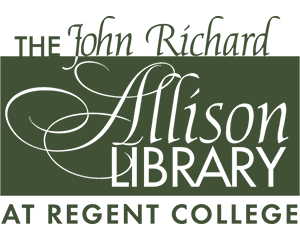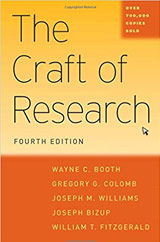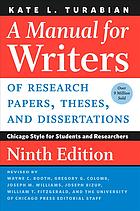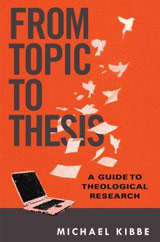Choosing a Research Topic
Theological research begins with a research topic. The most effective research topics are those that are narrow, or limited in scope. A topic provides the area within which your research will be performed, but research is most effective when it is guided by a research question. Instead of researching "the worldview of Christianity," use a question to guide your research: e.g., "What is the worldview of Christianity?" or "What do Christians believe about theology?"
Narrowing Your Topic and Crafting a Research Question
The more narrow your topic, the more manageable your research will be. A key priority for any research project is therefore to narrow the scope of research. For example, "What do Christians believe about theology?" is an impossibly broad research question. The combination of the keywords "Christian" and "Theology" will yield millions of resuts (48,797 in Regent's catalogue alone). In our sample question, three of the question's components could be narrowed.
- The subject "Christian" could be narrowed to "Protestant," and Protestant could be narrowed to "Baptist." Baptist could be further narrowed to Southern Baptist or Free-Will Baptist, each of which could be narrowed to individuals or churches (e.g., "What does First Baptist Church in Vancouver believe about theology?" or "What does Charles Spurgeon believe about theology?").
- The verbal phrase "believe about" could be narrowed, or specified, in several ways. For example, we could ask "What theology do Southern Baptists consider to be correct?" or "What theology is functionally evident among Southern Baptists?"
- The object could be significantly narrowed: instead of theology, we could inquire concerning christology or a specific doctrine such as the atonement, or even penal substitutionary atonement.
In summary, "What do Christians believe about theology?" is too broad to be a succesful research question. A better question might be, "What did Charles Spurgeon teach about penal substitutionary atonement?" Because a narrower question requires the researcher to be familiar with the topic at at hand, narrowing the question is a task a researcher must continually engage in as he or she researches.
Resources for Research Method
There are several resources in the Allison Library that provide further instruction regarding the first stages of planning and performing your research. These include:



